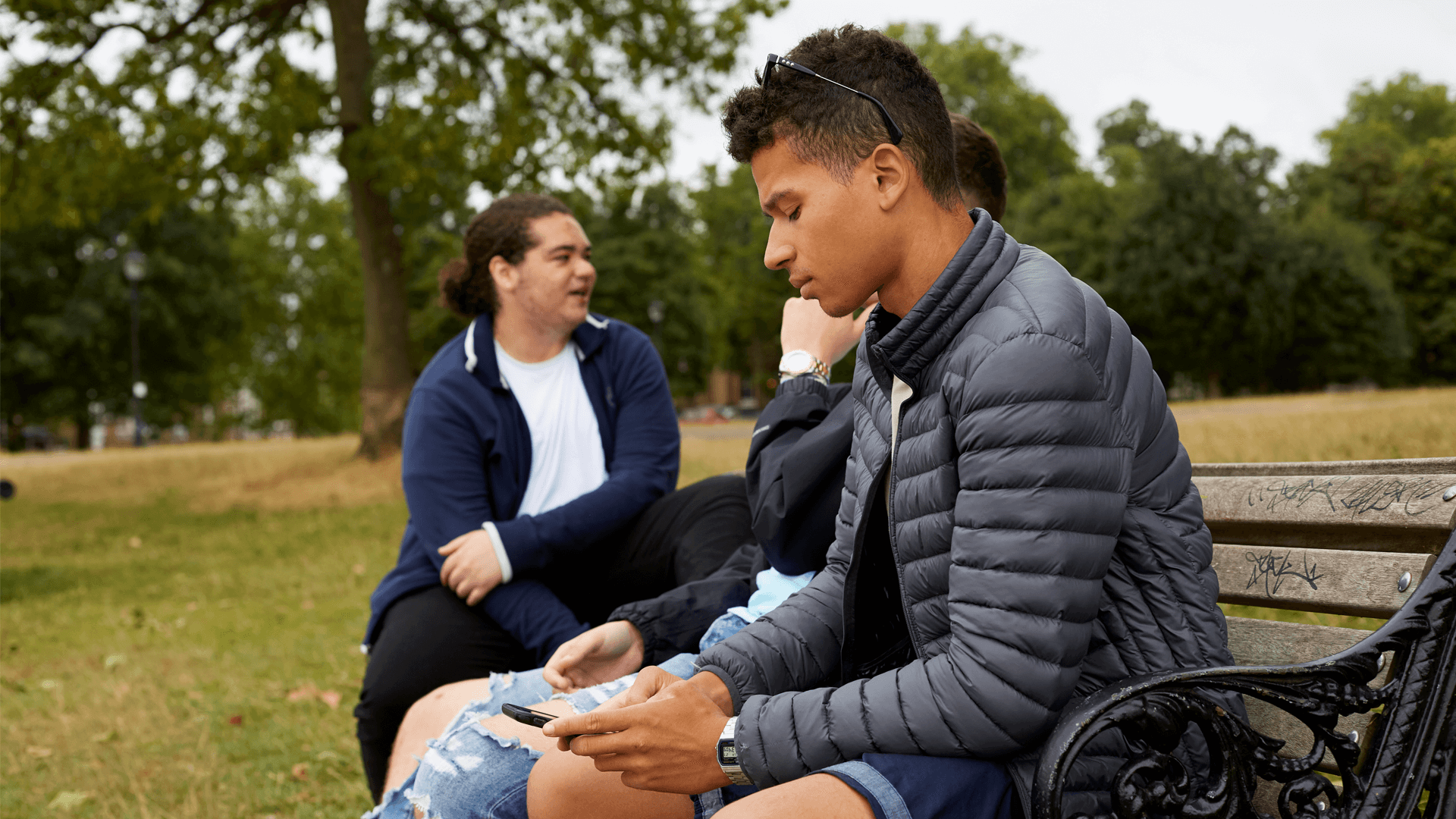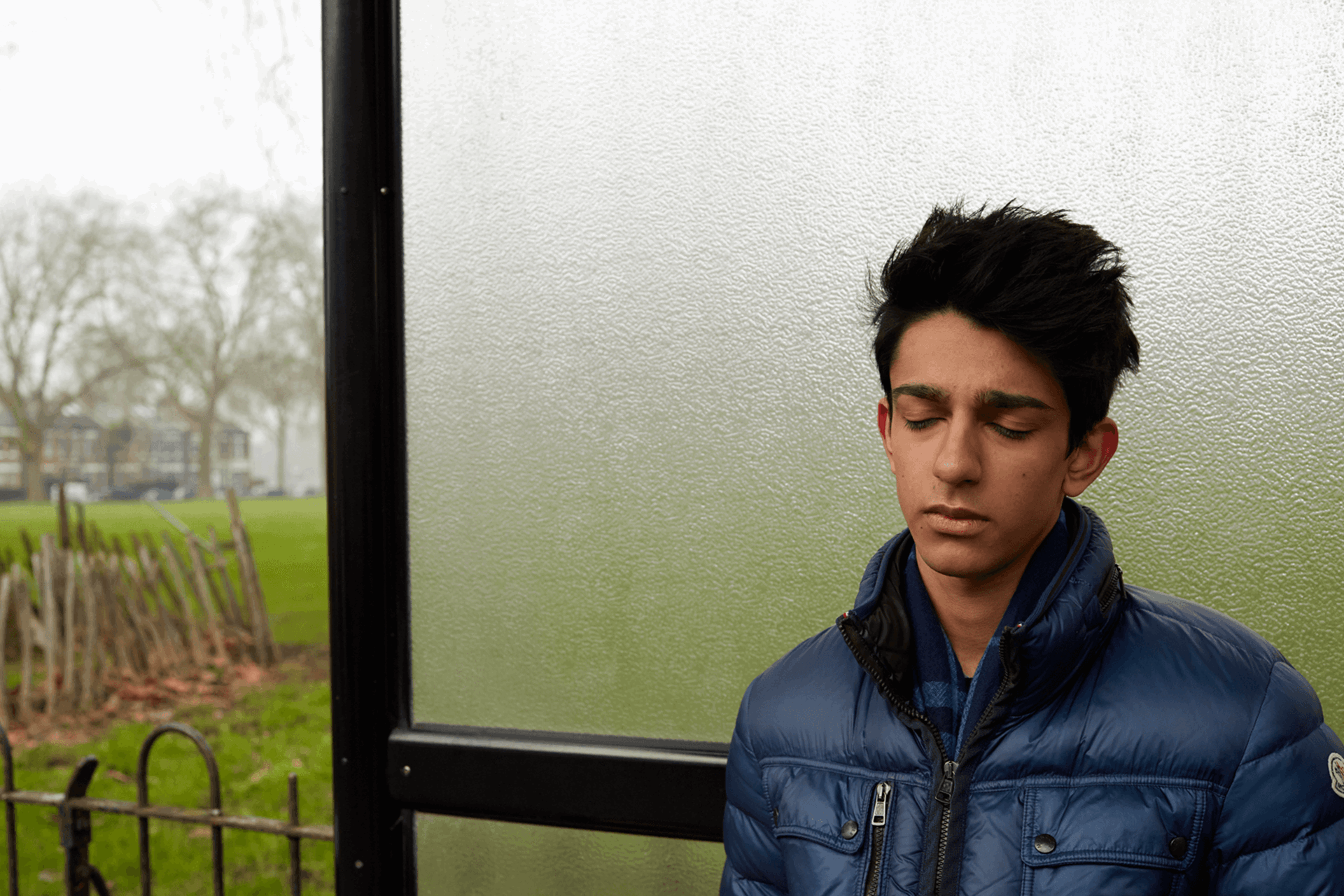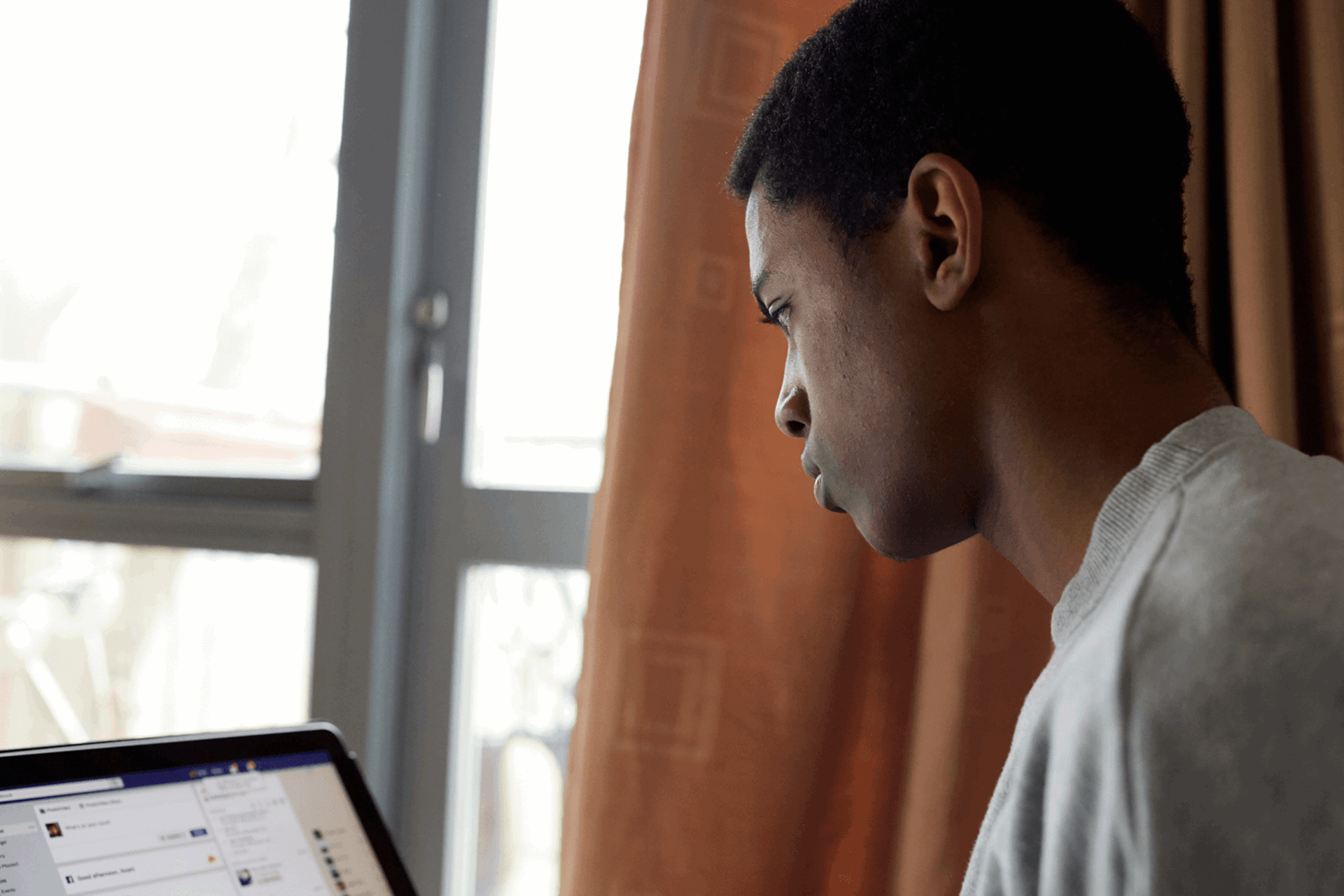Topics mentioned: gender and mental health, anger
About: What is 'toxic masculinity' and how can it impact our mental health? Luke shares how the pressure on men to hide difficult emotions has affected him.
Hearing phrases like “man up” can put so much pressure on somebody to act a certain way, without you even realising. For me personally, seeing society’s expectations of how to “be a man” had a big impact on me growing up. I remember just trying to lock away my emotions so my friends didn’t think I was “weak”. Having to act a certain way to prove something to someone else is not how someone should live. But that’s just one way toxic masculinity can affect our mental health.
I remember just trying to lock away my emotions so my friends didn’t think I was “weak”.
What actually is 'toxic masculinity'?
Toxic masculinity is a term used to describe the negative aspects of exaggerated masculine traits, which boys and men may feel a pressure to conform to because of cultural or societal expectations. For example, this might be the idea that men have to be providers, or shouldn’t show weakness. These traits are called ‘toxic’ because they can have a negative impact on boys and men themselves, as well as society in general.
What societal expectations do boys and men face?
We may not always realise it, but there are lots of expectations about the way boys should behave. For example, there are unwritten rules about what clothes we should wear and how we should present ourselves, and if we don’t adhere to these rules, then our “man status” is questioned. But this is very wrong! How we act shouldn’t define how much of a man we are.
Another big one is how we feel and express emotions. There’s often an expectation that boys and men should be self-reliant and, essentially, emotionless. We’ve all been told to “man up” at some point, maybe we’ve even said it ourselves, and at first it seems like a harmless phrase. But not many people (including myself for a long time) realise the gradual damage this can cause. The words “man up” in context are used to suggest that showing emotions makes you less of a man. But in truth, there is no correlation between gender identity and emotions. We all have emotions, and expressing them isn’t a sign of weakness, it's a sign of strength.
We all have emotions, and expressing them isn’t a sign of weakness, it's a sign of strength.
So why is it a problem for men not to express emotions?
The way I think of it is as one massive cycle. It’s no secret that men experience emotions on the same level that other genders do. But because of this idea that it’s not socially acceptable for men to cry or show vulnerability, it can come across like men just don’t experience sadness. Although this obviously isn’t true, if you never see other men cry or show vulnerability, it can make you feel like an anomaly if you do feel sadness.
But if you don’t acknowledge or express these feelings, they can and do become bottled up, and this is when it becomes the biggest issue. Think of it like a balloon, where the air inflating it represents these unexpressed feelings - there’s only so much it can take before bursting. Which is the same for us. When we just can’t take anymore, very often it comes out in anger or aggression - which is exactly the fuel that the male stereotype needs to continue! Do you see the cycle?
That’s why little things like telling someone to ‘man up’ may seem harmless, but over time it can lead us to struggle with our mental health.
Because of this idea that it’s not socially acceptable for men to cry or show vulnerability, it can come across like men just don’t experience sadness.
What can we do differently?
One solution is for us, as men, to learn how to express our emotions, especially sadness. It starts with being honest to yourself; in other words, don’t try to suppress the fact that you're feeling sadness. I know many guys, including myself, would automatically disregard any sign of sadness, so we need to challenge this. We do that by recognising the feeling, the cause of it, and expressing it however feels natural. This is important, because if you experience something funny, your natural instinct is to laugh. And there are times where we just can’t stop ourselves laughing right? Same with happiness - we just can’t help smiling when something makes us happy! Well, it’s the same with sadness.
Having other people, particularly other men to speak to and open up to also helps so much, because so often they will have felt something similar. And understand that no problem is too small to reach out for support! Getting help early can prevent these difficulties from developing into a more severe mental health condition.
The reality of the situation is that every single human has a brain, and therefore experiences emotions! And in order to get rid of the toxic masculinities in society, we need to enforce the message that “it’s okay not to be okay” - whoever you are. All of these expectations are based on outdated gender norms, and they’ve caused so many issues - and even fatalities - among boys and men, so let’s work together to ensure these stereotypes don’t cause any more trouble!
Having other people, particularly other men to speak to and open up to also helps so much, because so often they will have felt something similar.
More information and advice
We have tips and advice to help you find the support you need. Take a look at our guides.
Where to get help
However you're feeling, there are people who can help you if you are struggling. Here are some services that can support you.
-
Childline
If you’re under 19 you can confidentially call, chat online or email about any problem big or small.
Sign up for a free Childline locker (real name or email address not needed) to use their free 1-2-1 counsellor chat and email support service.
Can provide a BSL interpreter if you are deaf or hearing-impaired.
Hosts online message boards where you can share your experiences, have fun and get support from other young people in similar situations.
- Opening times:
- 24/7






